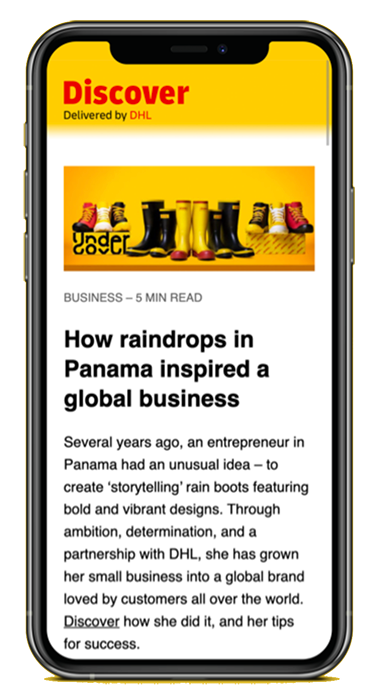Grow your business with the Discover newsletter
Logistics advice & insights straight to your inbox
Subscribe now
In 2021, Singapore ranked the second busiest container port in turnover volume worldwide, placing it among Asia's most valuable trading hubs. It's also one of the top countries with the highest trade surplus globally. But while the city-state is mostly favourable towards export and import businesses, some strict rules regarding strategic, prohibited, and restricted goods exist.
In Singapore, the legislation outlines two main types of controlled goods – restricted and prohibited. Restricted goods are partially banned. Depending on their kind, they may require an additional permit from the Competent Authorities (CA). Some examples of CAs include the National Parks Board that governs the flow of wildlife products and the Info-communications Media Development Authority of Singapore which restricts the imports of certain telecommunication equipment.
On the other hand, illegal drugs, pistols and firecrackers are only a few of the goods in the prohibited category. Such goods are usually deemed illegal to import and export.
We have compiled a list of prohibited goods here for easy reference. You may reach out to the relevant CA if you need to clarify regarding the prohibited items
Prohibited Item | Competent Authority (CA) |
Chewing gum (excluding Health Sciences Authority approved oral dental and medicinal chewing gum) 1. Pistol or revolver - shaped cigarette lighters
2. Firecrackers | SiArms & Explosives Division, General Licencing Division, Police Licencing & Regulatory Department, Singapore Police Force and Singapore Customs |
1. Rhinoceros horn (worked, unworked or prepared and the any part, power or waste of such horn)
2. Endangered species of wildlife and products derived from the body of such animals | National Parks Board |
2. Imitation tobacco products (electronic cigarettes, vaporisers) and components of imitation tobacco products
4. Smokeless cigars, smokeless cigarillos or smokeless cigarettes
6. Any product containing nicotine or tobacco that may be used topically for application, by implant or injected into any parts of the body
7. Any solution or substance, of which tobacco or nicotine is a constituent, that is intended to be used with an electronic nicotine delivery system or vaporizers
8. Nasal snuff / Oral snuff
| Tobacco Regulation Branch, Health Sciences Authority |
Controlled drugs listed under 4th Schedule of Misuse of Drugs Regulation | Health Products Regulation Group, Health Sciences Authority |
While forbidden – in this case prohibited – goods are not tradable under any circumstances, restricted items are importable under certain conditions with the necessary approvals from the relevant CA.
The complete list of restricted import items can be found via the Harmonised System code or the CA product code using the HS/CA Product Code Search Engine. In some cases, respective CAs may directly list their licencing requirements for goods subject to control.
According to the Strategic Goods Control Act (SGCA), strategic goods refer to items and their related technology that can be used to produce weapons of mass destruction, and missiles capable of delivering such weapons. This includes arms and military equipment, and commercial items that can be used to develop weapons of mass destruction.
The strategic goods permit, is a special licence allowing traders to export, transfer or broker strategic goods listed in the Strategic Goods Control List. Traders should approach Singapore Customs to find out more about the Strategic Trade Scheme (STS) where they can apply for an individual Permit or Bulk Permit depending on their business needs.
DHL Express can assist our shippers (with an approved STS licence/permit number) to apply for the mandatory Tradenet permit before the goods are handed over to our courier. We will need to present the goods and the Tradenet permit to the Customs officer for inspection before entering the Changi Airfreight Centre.
The List of Military Goods and the List of Dual-Use Goods are found in Division 2 of Parts 1 and 2 of The Schedule to the Strategic Goods (Control) Order
Examples of Military Goods includes items such as arms, ammunitions, bombs, tanks, imaging devices, military aircrafts, warships and chemicals etc.
Dual-Use Goods includes a wide range of goods that are designed for commercial applications, but can have military applications or potentially be used as precursors or components of weapons of mass destruction. Such goods can be used by commercial industries involved with Nuclear materials, Electronics & Telecommunications, Sensors, Lasers, Navigation, Avionics and Propulsion etc
In the past few years, online shopping has become increasingly dominant. The new market conditions prompted traders to improve their export and import strategy. If you want to expand your presence in Southeast Asia, Singapore is a significant entry point to consider. However, it would help if you were first acquainted with the customs restrictions, so you are aware not only of the forbidden or prohibited goods, but also those that are strategic and restricted, so that you can acquire the right licences for import.
Thanks to the exceptional DHL Express delivery service, businesses in Singapore can benefit from a seamless clearance process. All companies are eligible, as the only requirement is to apply for a business account on the DHL Express website.
We not only relieve the need to obtain a customs permit on the importer's behalf but also introduce you to a whole suite of shipping services underpinned by our unparalleled expertise through user-friendly applications like MyBill, MyDHL+ and On-Demand Delivery (ODD). Moreover, our delivery service experts can facilitate the process of adhering to the customs restrictions. Whether you are shipping items into Singapore from Malaysia or other countries in the region and beyond, trusting a reliable international logistics company like us can go a long way in ensuring your goods move smoothly in and out of the country.

